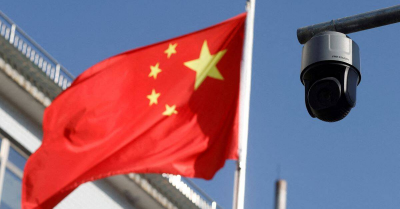Reuters-China tightens curbs on foreign travel by bankers state workers
October 17, 2023 5 min 1012 words
这则报道表明中国政府正加强对银行家和国有企业员工私人出境旅行的限制,同时审查他们的国外联系,这是北京方面针对外国影响力展开的行动的一部分。报道中的匿名消息来源和公告显示,这些限制措施已自2021年以来不断扩大,包括禁止海外旅行、加强限制旅行频率和时长、繁琐的审批程序以及出境前的保密培训。这些措施似乎与COVID-19无关,而是出于对国家安全的考虑。 这一行动反映了中国国家主席习近平在与西方关系紧张之际对国家安全的关注。这一举措可能旨在减少外国势力的间谍活动机会,因为北京越来越担心来自西方国家的间谍威胁。此外,政治意识形态也是一个因素,习近平希望“内向发展思想”,而不是从西方寻找灵感。 这种限制不仅适用于高级政府官员和拥有机密信息的国有企业高管,而且也波及了中国的7百万公务员和7千万国有企业员工。一些公务员和银行家抱怨,他们以前可以自由出国旅行,但现在却受到了前所未有的限制,如每年只能出国一次,最多12天。 此外,中国当局还在审查政府和国有企业员工的个人和家庭与其他国家的关系,这似乎是出于对官员在国外的观察的担忧。这些措施似乎是中国政府加强对外国影响的宣传的一部分。 总的来说,这一报道表明中国政府正在采取越来越严格的措施,以确保国家安全,但这也可能会限制中国官员与外部世界的互动,降低他们了解外部世界的机会,这可能对中外交往产生一定影响。这一举措反映了当前中国在国内政治和国际关系方面的紧张局势。
Chinese civil servants and employees of state-linked enterprises are facing tighter constraints on private travel abroad and scrutiny of their foreign connections, according to official notices and more than a dozen people familiar with the matter, as Beijing wages a campaign against foreign influence.
Ten current and former employees told Reuters the curbs had been widened since 2021 to include bans on overseas travel, tighter limits on trips' frequency and duration, onerous approval processes, and pre-departure confidentiality training. They said the measures were unrelated to COVID-19.
The individuals' accounts varied but were consistent in describing heightened scrutiny of overseas travel even after China reopened borders in January. The people, who worked across the country as civil servants, in state-owned enterprises or the public sector more broadly, spoke on the condition of anonymity because of the issue's sensitivity.
Reuters also found eight public announcements over the past two years by eight government entities, including the national pension fund, that indicated they were strengthening rules around workers' personal trips outside China, without detailing all the changes.
Other individual accounts and documentation reviewed by Reuters show a parallel effort by central and local Chinese authorities to map government and state-linked workers' personal and family ties to other countries. Reuters is reporting these measures and the scope of some post-COVID travel curbs for the first time.
The actions reflect President Xi Jinping's focus on national security amid fraught relations with the West, two experts told Reuters. China in recent months has encouraged citizens to participate in anti-espionage activity, and introduced new laws that broadened the definition of spying.
"Beijing is increasingly paranoid about the threat of espionage by Western countries, and preventing government employees from going abroad could be a way to reduce opportunities for spying by foreign powers," said Neil Thomas, a fellow of Chinese politics at the Asia Society Policy Institute's Center for China Analysis in Washington.
Political ideology was a factor, too, Thomas said, with Xi wanting to "look inward for ideas" rather than seek inspiration from the West.
Neither the State Council Information Office, which handles media queries on behalf of China's government, nor any of the state-linked enterprises, Chinese government and Communist Party entities described in this report responded to Reuters questions about the travel curbs or data collection.
Restrictions on personal foreign travel have long applied to senior government officials and state executives with access to confidential information. Reuters found these limits are now filtering down the ranks of China's civil servants - who numbered 7 million, according to the most recent data from 2015 - and 70 million state-enterprise workers.
Lower-level workers at China Construction Bank in Beijing and Shanghai can travel abroad for personal reasons just once a year and for only up to 12 days, according to two bankers, one with almost two decades of service.
Both discovered the constraints, which they said were unprecedented, when applying for time off in early 2023.
Some public school teachers also face new curbs on overseas trips, according to a teacher in southeastern Zhejiang province and a person with knowledge of new regulations introduced in a Shanghai district this year.
At one large branch of state policy lender China Development Bank, overseas trips have been banned this year, according to a person who works there, while an employee of a state-connected mutual fund said travel restrictions were extended recently to new hires in Hong Kong and Singapore.
Reuters could not determine whether restrictions varied by destination.
Among the official notices seen by Reuters were directives by a government affairs unit in a district of eastern Ningbo city in September and another by the National Council for Social Security Fund earlier this year. Both emphasised tougher vetting of employees' requests for personal trips overseas.
In eastern Wenzhou city, a branch of the Municipal Eco-Environment Bureau published revised rules on an official website in September last year, stating that employees can travel abroad only once a year and for no longer than a month.
Wang Zhi'an, a former Chinese state-television anchor who runs an independent media outlet in Japan, said authorities may be worried about officials' observations outside China.
"This exposure might subtly influence the thinking and awareness of these officials," he said. "They might start to question the Communist Party's management system and wonder why it's like this."
Chinese authorities are also scrutinising personal foreign ties, according to a document seen by Reuters, one of the 10 people who discussed travel curbs and three other state-enterprise workers with knowledge of the matter.
Starting around late last year, these people said they received questionnaires from bodies such as the Communist Youth League, Chinese People's Political Consultative Committee (CPPCC), local authorities, and their respective employers.
The forms asked for information on relatives with foreign nationality or overseas permanent residence, and details of foreign assistance or experience, the people said, adding that it was the first time they had received the requests.
Reuters saw one of the questionnaires but could not fully establish how authorities used the data.
The measures come as China steps up public messaging about foreign influence. In August, the Ministry of State Security said on its recently launched WeChat account that it had identified a Chinese national in Italy suspected of spying for the U.S. Central Intelligence Agency, and warned of the potential for Chinese to be recruited abroad.
The CIA did not respond to a request for comment.
Thomas said the travel curbs in particular would have implications for China's interactions with the world.
"The less Chinese officials go abroad, the less they're able to learn from good things that foreign governments are doing, the less they are familiar with foreign societies, and the less they understand how China is truly perceived in the world," he said.

